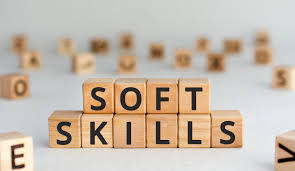
If there is anything that we have been taught over the years, it is that we live in an unpredictable age. Disruptive events continue to rock supply chains off their traditional foundations. Things can easily change or go awry or simply happen in a way that was unexpected. For procurement professionals, it would appear they continue to have curveballs thrown at them one after another.
There is a strong need to be able to roll with the punches as and when they come. Supply chains are composed of many different components, which is why it is so easy for things to go wrong.
The unforeseen challenges will obviously demand quick thinking and effective problem solving. The vast majority of stress and strain in supply chain management is carried on the shoulders of procurement personnel.
They happen to have a view of all the ins and outs of the business. The surging wave after wave of curveballs will require soft skills. As we move into the future, soft skills have emerged as the key differentiator of success.
It is always acknowledged that domain knowledge will always remain primary, but soft skills are now paramount than ever before. Procurement professionals are therefore encouraged to improve their soft skills in tandem with, and or beyond their technical skills.
There are countless moving parts in procurement which can go wrong and may require a bouquet of soft skills. Whenever things go wrong, getting them back on track will require more than technical skills.
It will require managing people through the use of soft skills. Procurement, after all, is all about people. Technology cannot and will not replace human relationships in the workplace.
A computer will never be in a position to build lasting relationships or read between the lines.
- Emotional intelligence imperative in supply chain management (II)
- Cost to serve analysis: The holy grail of profitability (I)
- Cost to serve analysis: The holy grail of profitability (11)
- Increased focus on supplier diversity is the way to go
Keep Reading
It is particularly important to know when to let the machines do the work and when to bring the human touch to a problem. It is a fact that business processes and systems can only be as good as the people manning them.
Human beings will always remain the most critical differentiator between average and best-performing organisations.
Soft skills are generally superpowers for procurement personnel to become superstars. They are regarded as architects of profitable growth meant to respond swiftly to market peaks or troughs in business.
Soft skills, in today’s context, are where the businesses’ competitive edge resides. Having said that, it is also important to remember that hard skills are also important in procurement. Hard skills are learned abilities that professionals gather over the years and develop through education and experience.
Such kind of skills are quantifiable, measurable, and can be learned through formal education, training or through certification programmes. Technical skills are regarded as foundational. We should not consider hard and soft skills as mutually exclusive.
Supply chain professionals will require both skills to translate potential into success. It is often said that soft skills will assist you to seal the deal in a job interview while hard skills will create the opportunity for you to get into the interview room. It is the harmonious blend of both skills that sets people apart.
The supply chain industry continues to evolve and will always require a lineage of people with both skill sets to take over empty roles as and when they are open spaces.
Soft skills are personal attributes and interpersonal skills that enable people to effectively work with others.
They include enhanced communication skills, improved collaboration and teamwork, effective leadership, adaptability and flexibility, problem solving and critical thinking, emotional intelligence, time management, conflict resolution and relationship building just to mention a few.
Soft skills, as they are traditionally referred to, are not soft after all.
These skills are required to adapt to the rapidly hard and very difficult shifting priorities.
They are critical for making hard decisions in supply chain management. They are relied upon for building lasting business relationships and for promoting open communication, which are essential for collaboration and fostering teamwork.
Soft skills such as communication skills will always continue to get a lot of airplays in every industry and sector.
In the intricate world of supply chain management, possessing a robust set of communication skills could easily turn out to be the cornerstone of professional triumph.
Communication and collaboration skills are the new currency of business transactions. It must also be noted that there is no luxury of hindsight in procurement.
There is need to be detail-focused and hyper-aware of every minute detail. In an age of information overload, supply chain challenges require a harmonious blend of analytical prowess, strategic vision and collaborative dexterity.
The need to synchronise with the market’s pulse, meeting the customer spoken and unspoken expectations is now table stakes.
In the competitive marketplace, soft skills such as agility, flexibility and resilience are imperative to weather ongoing volatility and uncertainty.
Supply chain managers skilled in analytics can identify patterns, predict trends, and make data centric decisions that improve efficiency and customer satisfaction given that supply chain management is regarded as a near-constant practice of problem solving which can result in the unlocking of a world of benefits.
Data literacy involves not only the ability to read and interpret data but also discerning its relevance in procurement and determining how to analyse the data and translating the insights into actionable business strategies.
Analytical skills are crucial for predicting trends, identifying potential disruptions, optimising processes and ultimately driving profitability.
It must be noted that the field of analytics has evolved beyond simple descriptive statistics to more sophisticated predictive and prescriptive analytics. Predictive analytics will assist procurement professionals with the capacity to harness historical data for use in forecasting future scenarios, while prescriptive analytics will find data useful for recommending actions to optimise projected outcomes.
Most organisations survive black swan events, thanks to their capacity to relate to others.
Relationship management skills sit central to the development of loyalty and trust, ensuring that every procurement transaction sings in harmony with customer expectations.
Every cog of the supply chain ecosystem must be perfectly aligned, every project completion being a testament to the prowess of soft skills.
Relationship management as a soft skill will enable procurement professionals to be regarded as diplomats who are determined to build bridges, not walls, weaving a web of trust and loyalty in business relationships.
Relationship management skills are crucial for building and maintaining strong partnerships with suppliers, customers and internal stakeholders.
Building strong partnerships with stakeholders is key in the creation of a seamless supply chain which invariably takes care of siloed thinking and attitudes.
Long-term business relationships can also lead to more favourable terms, including better pricing, flexible payment terms and priority access to goods and services. The foundation for shared success and sustainable growth is created through good relationship management.
Critical-thinking is a must have in today’s fast-paced business world where the stakes are always at the highest.
It is very important because it entails the process of analysing, evaluating and making decisions based on readily available evidence and reasoning. Critical thinking will assist the procurement professionals in identifying and addressing underlying issues or root causes rather than just the treatment of symptoms.
Critical thinking encourages innovative problem solving approaches by challenging conventional wisdom and exploration of various alternative scenarios.
Supply chain management involves a series of a complex web of decision-making, analysis and problem-solving. At its core, procurement management is just about solving problems. It also entails a detailed understanding of the business’ goals and objectives.
Critical thinking is generally regarded as the foundation of effective decision-making given that it enables supply chain professionals to identify and assess relevant information, analysing information objectively and looking at the pros and cons of various scenarios. Sometimes it actually entails anticipating potential obstacles before they actually arise.
Critical thinking and problem solving soft skills will prioritise the gathering of information from various strategic sources to include your major suppliers, major contractors and service providers with a view to analyse the information and evaluating alternative options, making informed decisions based on facts.
Such skills will assist supply chain professionals to identify and spot gaps where suppliers can improve their product portfolios, improve their processes, reduce costs of doing business and or where there is a scope to improve efficiency and effectiveness.
Problem solving is therefore not just a skill, but an essential mind set. It is important to be able to think on your feet, to know the problem and figure out how to move forward.
Critical thinking and problem solving skills will therefore involve thinking rationally with the intention of excluding personal biases, emotional responses and subjective judgments.
Collaboration skills will assist in bringing together individuals from various departments by pooling their knowledge and perspectives.
Open lines of communication enable stakeholders to share information, ideas and challenges openly.
Supply chain professionals will be required to create a balancing act between competing priorities from various departments — what with the need to adhere to budgetary constraints.
Sharing of notes on a regular basis ensures that everyone is on the same page and enables the identification of potential roadblocks or opportunities.
The promotion of open dialogue will assist in the leveraging of diverse opinions which enable business organisations to tap into the collective intelligence with the potential to create solutions to complex problems.
To flourish in this dynamic domain, soft skills like communication, adaptability, and leadership are essential for effective collaboration, fostering teamwork and achieving common objectives.
The emotional intelligence to navigate the ebb and flow of conversations and ultimately win-win outcomes is a key soft skill.
Emotionally intelligent people recognise that when conducting business negotiations with other supply chain partners, there is need to be considerate, thoughtful and respectful.
Savvy procurement personnel who are endowed with emotional intelligence take time to focus their attention on the resolution of business challenges while at the same time trying to remove emotions out of the discussions.
In some cases, it is common knowledge that as negotiations for favourable terms and conditions hot up with suppliers, there is often a tendency for supply chain professionals to overly focus on personal agendas without due regard to facts. It is therefore advisable that as negotiations progress negatively or positively, it is always important to acknowledge the nuances of human emotion if progress is to be made.
In conclusion, it must be noted that a harmonious blend of both hard skills and soft skills is vital for triumph in procurement management. The emergence of the knowledge economy implies that it is these personal soft traits that deliver competitive edge. These forward-thinking skills will enable organisations to stay ahead, navigate uncertainties and seize opportunities as they arise.
It is very important for supply chain professionals to take advantage of the spaces provided by soft skills and make impactful profitable decisions. Soft skills don’t exist in a vacuum.
They enhance and amplify your hard skills. The future belongs to those who can blend technical prowess with interpersonal finesse.
There are future focussed skills required for success.
The true mark lies in mastering the often underestimated world of soft skills. With dedication and practice, it is possible to unlock a world of possibilities. Every success story is a function of every brick in your foundation of soft skills.
- Nyika is a supply chain practitioner based in Harare. — [email protected]










